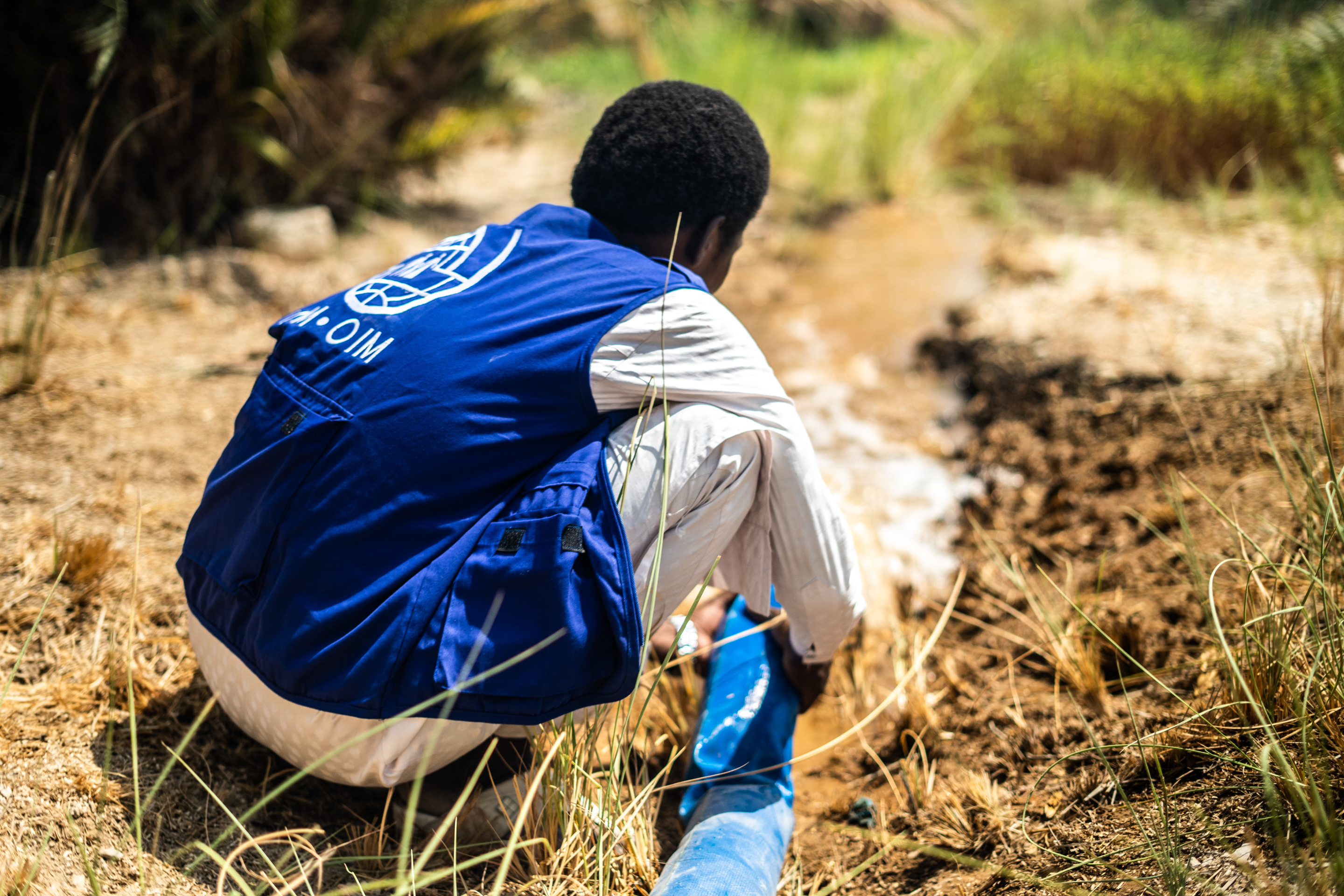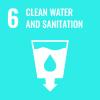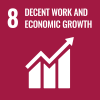Koukourou, Borkou province, 17 April 2023 – Walking through her fields of onions, garlic, and hibiscus, Ngala is a fulfilled woman.
“Our lives today cannot be compared to yesterday,” she says, holding a fresh harvest of garlic. “Everything is better now!”
When her husband passed away in 2008, Ngala took charge of the family plot of land. Although the inheritance was transmitted to her sons as per local customs, they trusted her capable hands to make the land fruitful.

An IOM staff holds a water pipe feeding into an irrigation canal dug by the farmers following the installation of the solar-powered system. Photo: IOM/Andrea Ruffini 2021
But the mother of two faced a considerable challenge: irrigation.
Koukourou, her native community located in Chad’s Borkou province, only had one water point which was shared with many other farmers. To ensure everyone had access to water, the community had decided to ration the use of this precious resource. Farmers would take turns to make reserves, thus ensuring equal access and reducing the possibilities of conflict.
“Our turn was on Sundays, and we could only fill 10 buckets of water for the garden each week,” Ngala remembers. “We knew our garden always had potential, but our issue was water.”

Ngala (right) and women from her cooperative pose in the Koukourou garden. Twenty women form the cooperative which farms the garden. Photo: IOM/François-Xavier Ada 2023
Like Ngala, hundreds of farmers across Chad’s northern arid regions have issues accessing drinking and agricultural water, despite extensive underground and surface resources.
“Although the water is available, it is underground, and farmers have limited financial and technical capacity to dig deep enough wells to pump water for irrigation,” explains Alassane Dembele, Peacebuilding Programme Officer with IOM in Northern Chad. As a result, he continues, “Agricultural productivity is conditioned by rainfall variability, and livelihoods remain fragile and vulnerable to climate shocks.”
As part of peacebuilding and community stabilization initiatives in Northern Chad, IOM supports small-scale farmers and community gardens with irrigation scaling to boost agricultural productivity and empower community farmers to become more resilient.

Ngala, a farmer in Faya, has benefitted from IOM’s Community Gardens Initiative in Northern Chad which includes scaling irrigation to enhance agricultural productivity. Photo: IOM/François-Xavier Ada 2023
“In targeted communities, and based on needs expressed by community members, we provide irrigation scaling support which can range from building a water point where access to surface water is easy, to digging a well or installing a solar-powered irrigation system when the water is deeper,” says IOM’s Alassane Dembele.
In Koukourou, Ngala and her sons succeeded in digging a well but couldn’t pump enough water to irrigate the vast garden. In partnership with the local Technical and Vocational Training Centre which also receives support from IOM, 12 solar panels were installed in the Koukourou garden to feed into the garden’s irrigation canals.
For the Ngala and her family, this was a game changer. With more water, they could now farm on more land and produce a wider range of vegetables. She decided to join hands with neighbouring women and together, they established a farming cooperative with enough hands to cover the entire plot of land.

Ngala and her first son, who inherited the garden and entrusted it into her hands. Photo: IOM/François-Xavier Ada 2023
“Our production has changed. With this water, you can see that everywhere is green. We have carrots, beetroot, onions, lettuce, everything!” she exhales. “We sell our produce regularly at the big market as well as to smaller resellers, then we use the benefits to reinvest in buying new seeds to sow”.
Beyond economic benefits, the “new Koukourou garden” has empowered Ngala and her neighbouring farmers to become autonomous.
“Before, we depended on our husbands for every single expense we wanted to make but now, this is no longer the case,” says Hawa, a member of the cooperative. “With what we earn here, we can send our children to school, pay for our medical bills and other personal expenses without asking them for anything, and everyone is happy!” she adds.
In the Borkou, Ennedi-Ouest and Tibesti provinces, IOM has supported irrigation scaling micro-projects in 19 communities benefitting over 20 000 persons with funding from the Federal Republic of Germany, the UN Peacebuilding Fund, Japan and Switzerland.
This story was written by Francois-Xavier Ada, IOM Chad Communications Officer.



